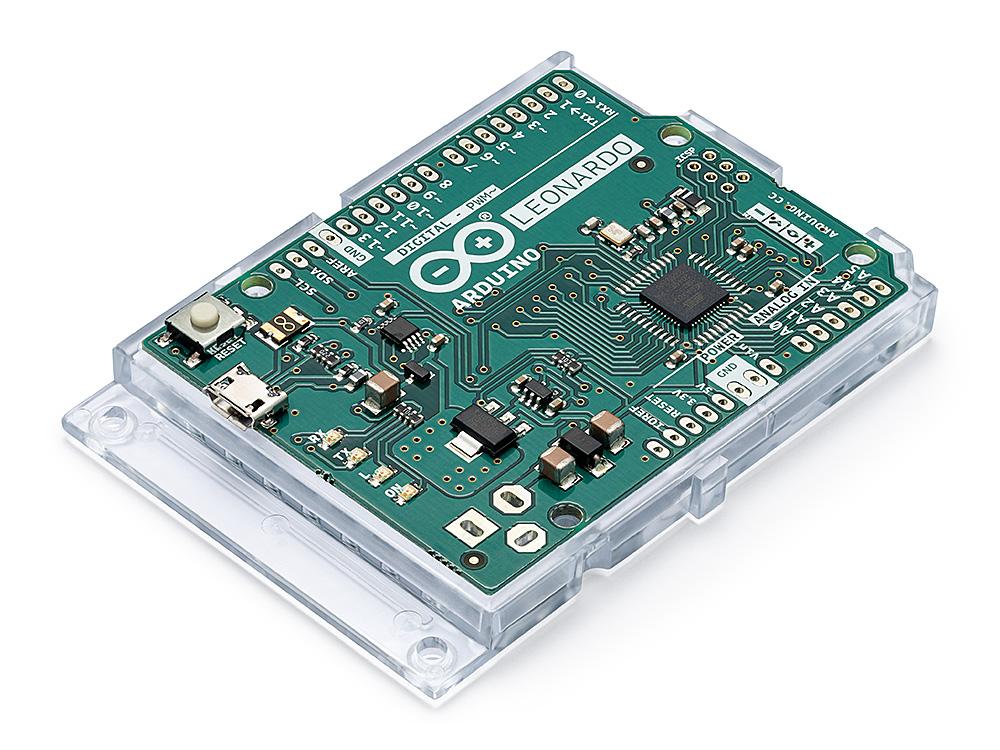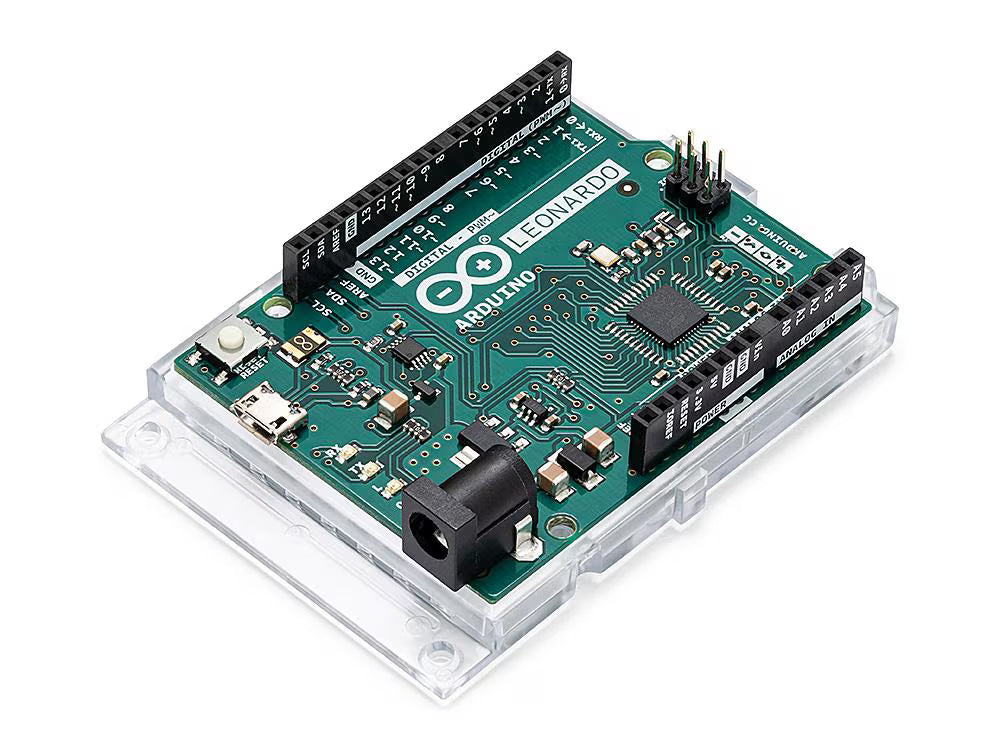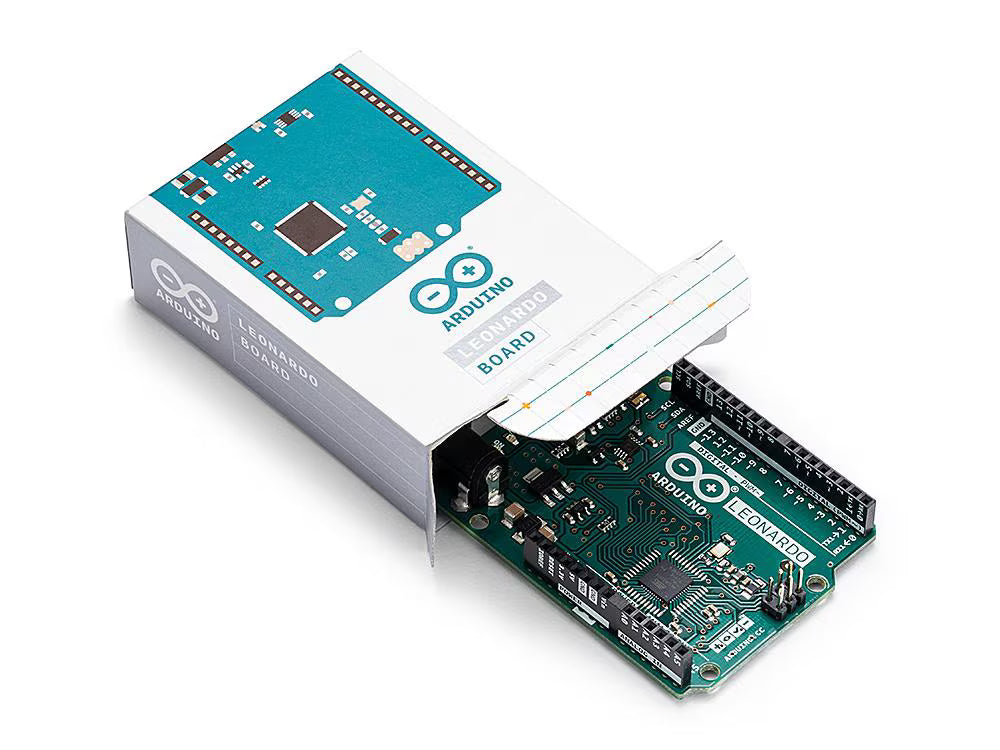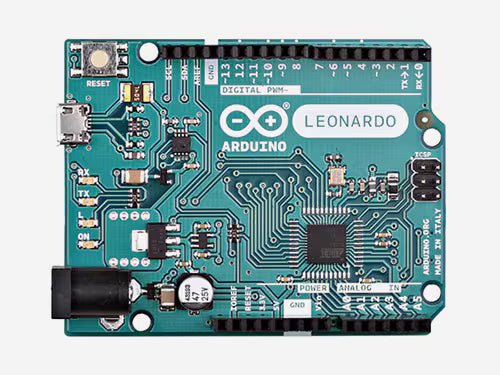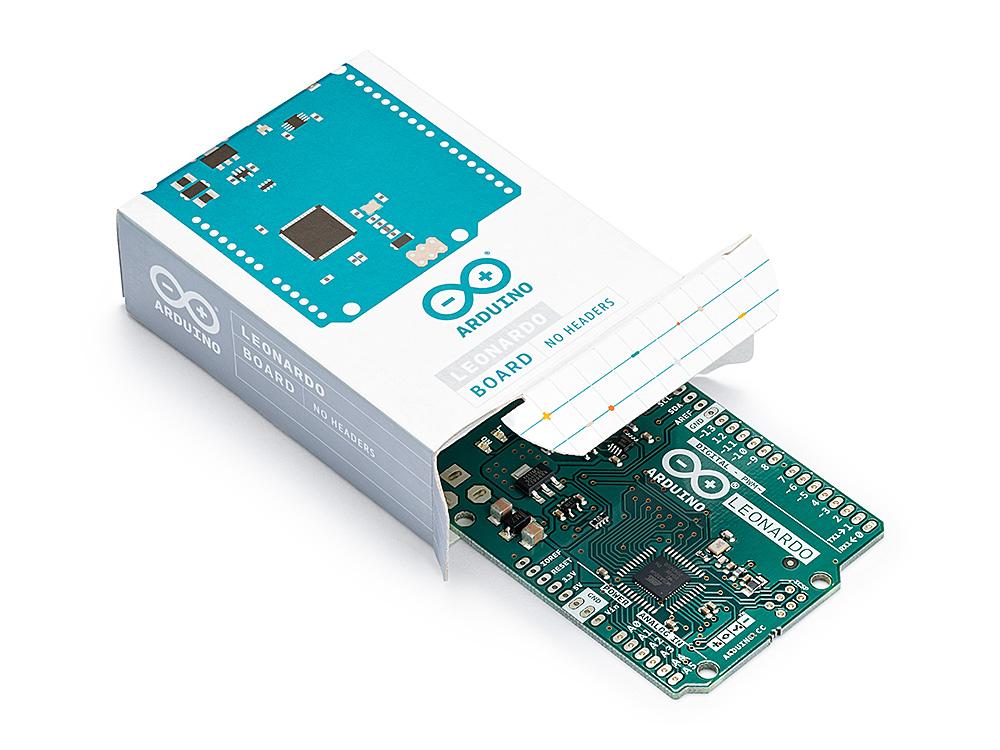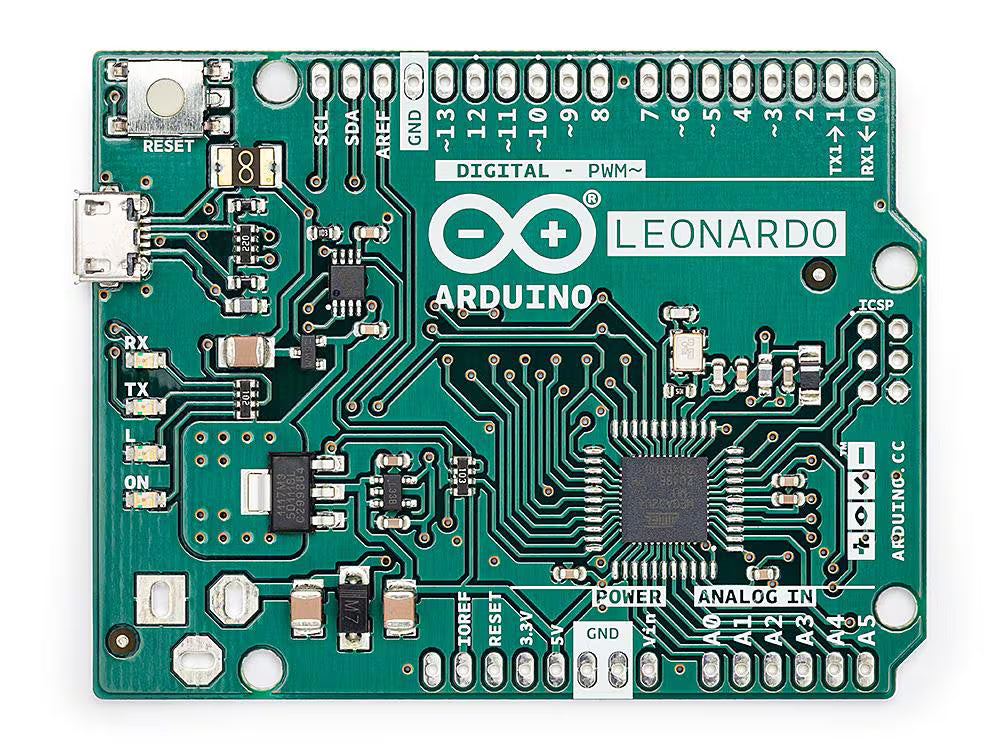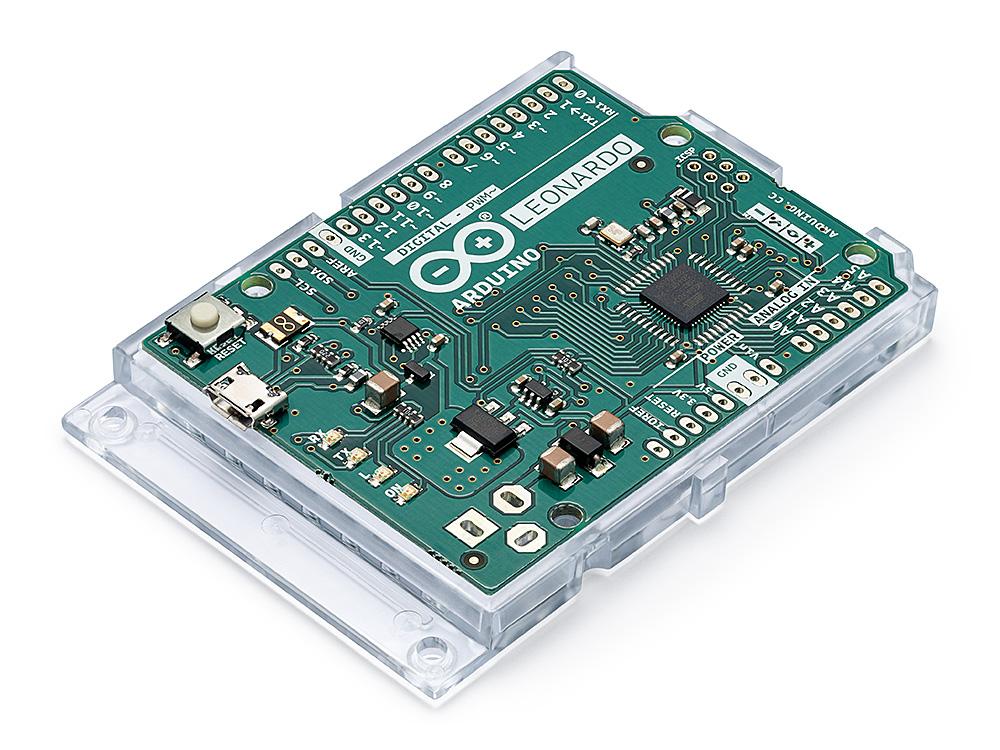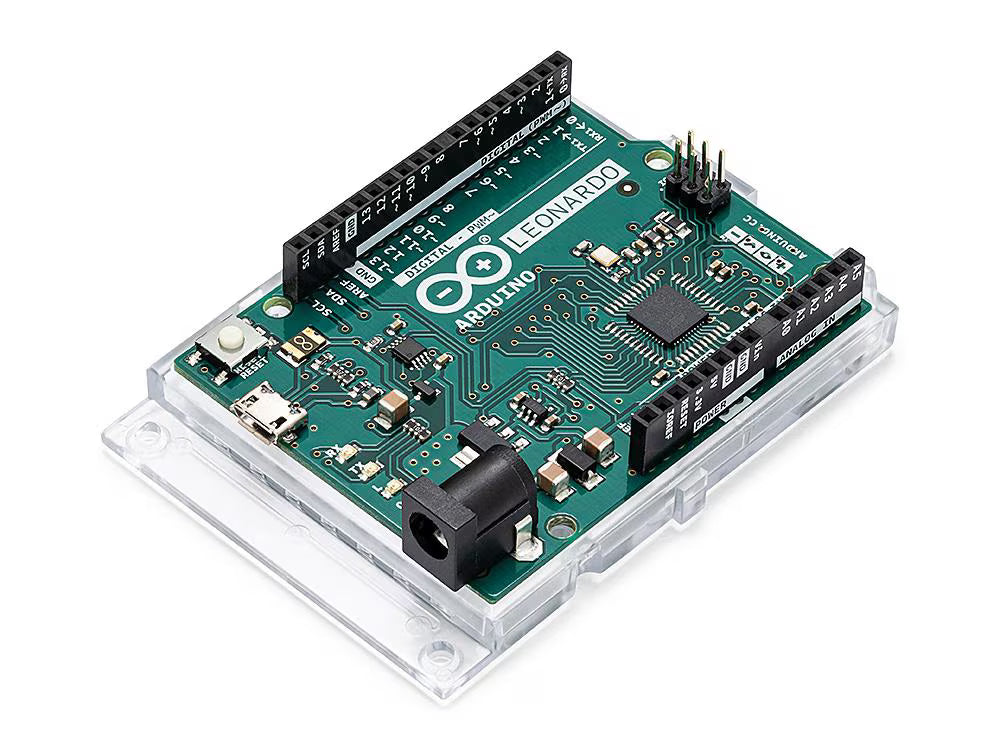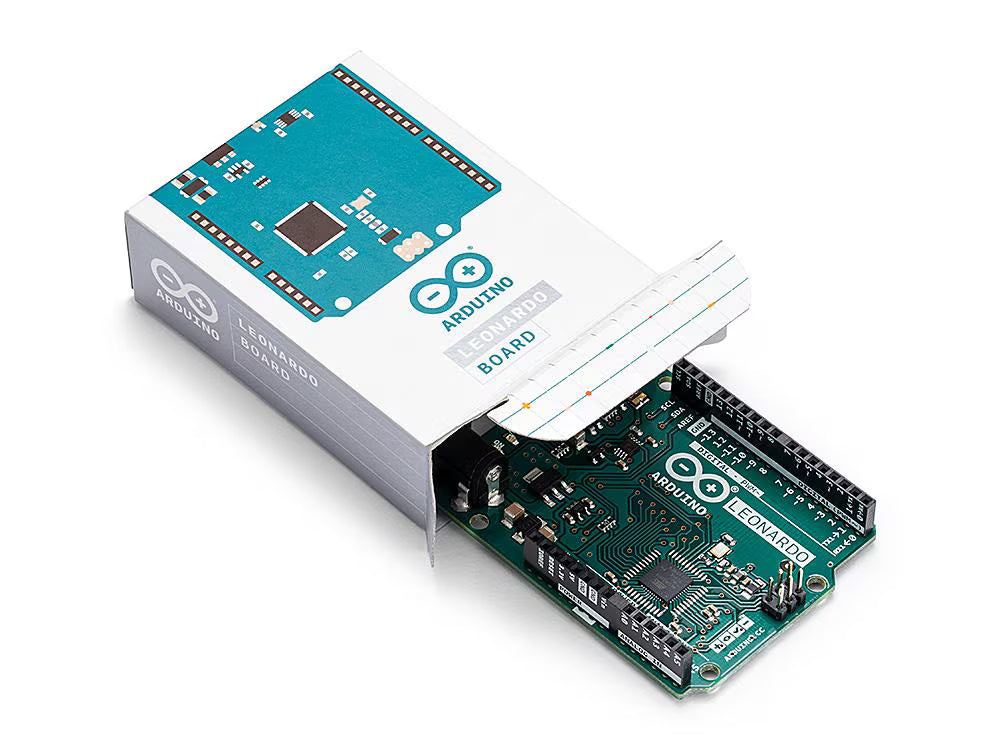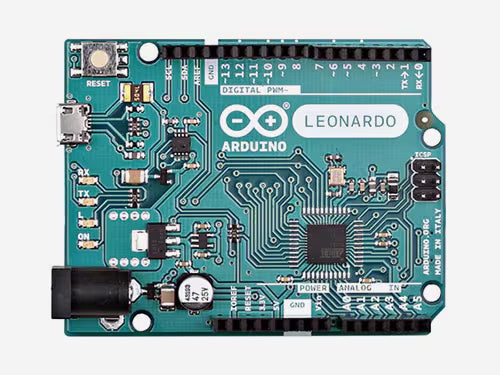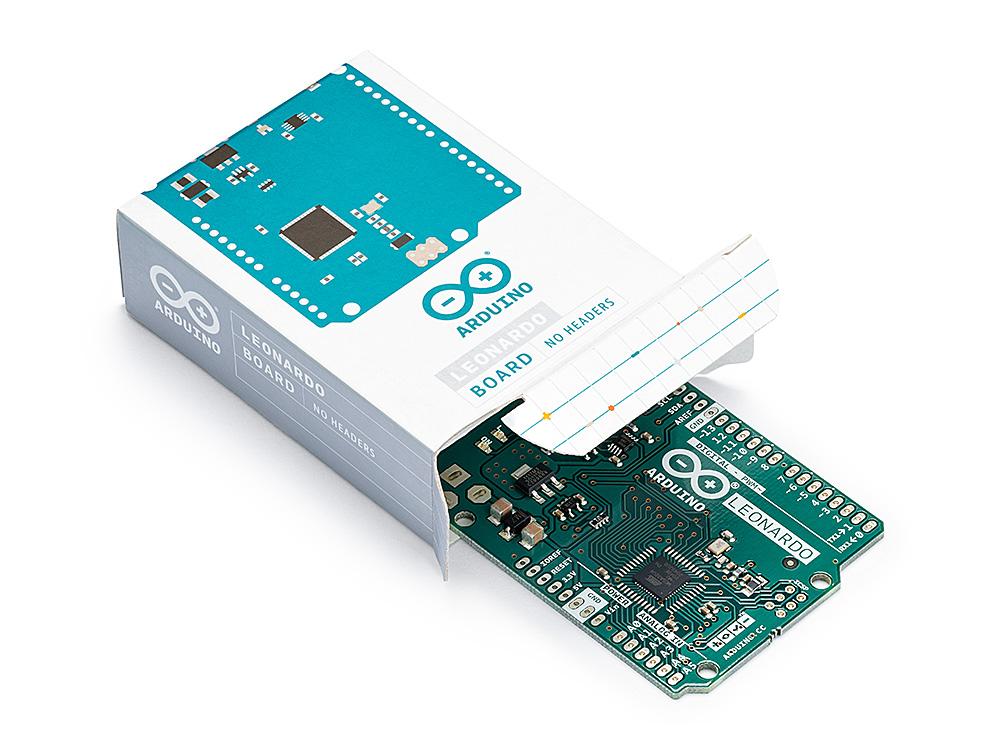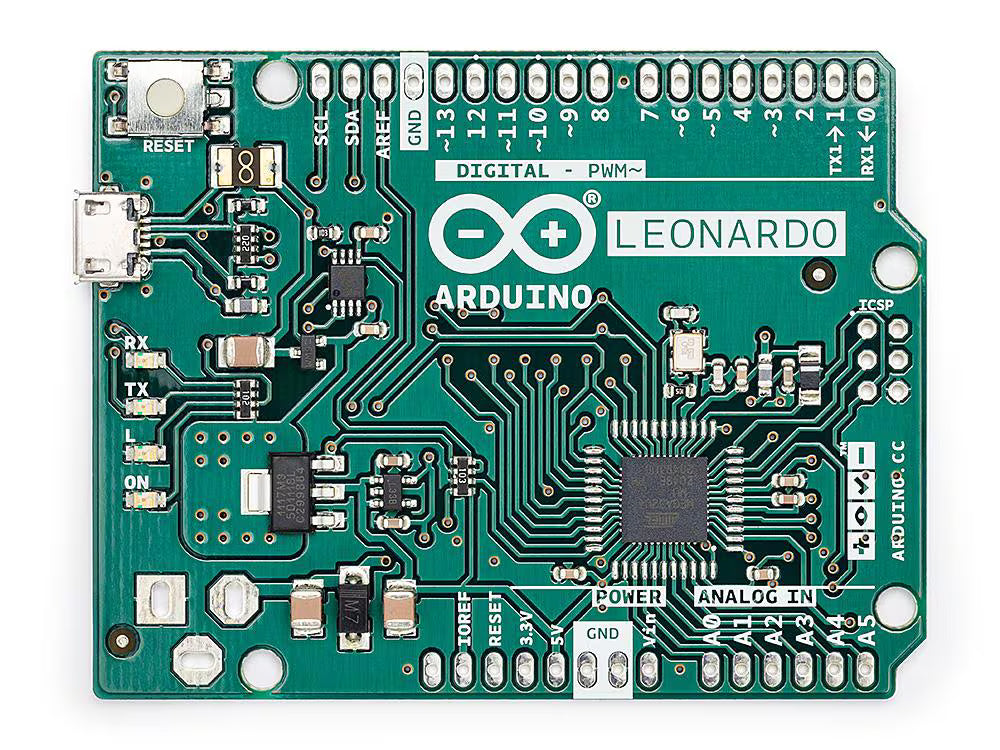Arduino Leonardo Development Board – ATmega32u4, USB HID, Arduino Compatible from Circuitrocks is ideal for DIY electronics builds.
Great for Arduino, ESP32, Raspberry Pi, and robotics or school projects here in the Philippines.
Arduino Leonardo is the classic Arduino with native USB—no separate USB-serial chip. Powered by the ATmega32U4 @ 16 MHz, it can appear as a keyboard, mouse, or USB MIDI/CDC device while running your sketch, making it perfect for macro pads, HID controllers, data-logging keyboards, and compact robots in the Philippines. You still get the familiar R3 layout, 5 V logic, and broad Arduino ecosystem of shields, sensors, and displays.
Native USB HID — Turn Ideas into Keyboards, Mice & MIDI in Minutes
- USB without extras: the 32U4 provides built-in USB, so uploads are fast and HID is easy with Keyboard.h and Mouse.h.
- More inputs: 20 digital I/O (7 PWM) plus up to 12 analog inputs for richer UIs and sensing.
- UNO-style workflow: 5 V logic, R3 footprint, Arduino IDE support, and massive library selection.
- Clean cabling: compact board with Micro-USB for power and programming.
What you can build
- USB gadgets: macro pads, stream decks, custom mice/joysticks (HID)
- Robotics & control: PWM motor/servo control + IMU/ToF sensing
- Dashboards & kiosks: OLED/TFT status screens, keypads, rotary encoders
- Data logging: sensor capture + microSD/RTC, export via USB CDC
Starter bundles (quick picks)
- HID Starter: Leonardo + USB Micro-B cable + pushbuttons/encoders + 0.96″ OLED
- Sensor Lab: Leonardo + BME280 + HC-SR04 + RTC
- Robot Mini: Leonardo + TB6612FNG + 2WD chassis + battery/PSU
Recommended add-ons
- USB Micro-B data cable & regulated 5–12 V supplies
- Shields (motor, relay, Ethernet, proto)
- Displays & sensors
- Logic level converters for 3.3 V-only modules
- Tools & multimeter for bring-up
- Cases & mounting (UNO footprint)
Technical specifications
| Microcontroller | ATmega32U4 @ 16 MHz (native USB) |
|---|---|
| Operating voltage | 5 V logic |
| Input voltage (VIN) | 7–12 V recommended (allowable 6–20 V) |
| Digital I/O pins | 20 total (7 PWM) |
| Analog inputs | Up to 12 (10-bit ADC) |
| USB | Micro-USB (CDC/HID/MIDI capable) |
| Serial ports | Serial over USB (CDC); Serial1 on pins 0/1 (TTL UART) |
| Interfaces | I²C (SDA/SCL on pins 2/3), SPI via 6-pin ICSP header |
| Memory | Flash 32 KB (≈4 KB bootloader), SRAM 2.5 KB, EEPROM 1 KB |
| DC current per I/O | ~20 mA (observe absolute maximum ratings) |
| 3.3 V pin | ~50 mA max (for low-power modules) |
| Dimensions | 68.6 × 53.4 mm (UNO R3 footprint) |
Pinout & power notes
- USB/HID: use Keyboard.h and Mouse.h to emulate input devices; MIDI/CDC examples are available.
- SPI on ICSP: Leonardo’s SPI bus is only on the 6-pin ICSP header (not on D10–13), ensuring shield compatibility.
- I²C location: SDA/SCL are on pins 2/3 (also broken out near AREF on many shields).
- Power: for motors/LED strips, use an external PSU; keep grounds common with the board.
What’s in the box
- Arduino Leonardo board
FAQs – Arduino Leonardo (Philippines)
How is Leonardo different from UNO?
Leonardo’s ATmega32U4 has native USB, so it can act as a keyboard/mouse/MIDI device without a separate USB-serial chip. It also exposes more analog inputs (up to 12).
Which cable and power supply do I need?
Use a USB Micro-B data cable for programming. For standalone projects, power via the barrel jack or VIN (7–12 V recommended).
Will my UNO shields work?
Most do. For SPI shields, connect via the ICSP header. Verify library pin maps and chip-select when stacking multiple shields.
Do you ship nationwide and support school/corporate orders?
Yes. We ship nationwide across the Philippines via trusted couriers and can prepare classroom bundles and bulk quotations on request.
Arduino Leonardo Development Board – ATmega32u4, USB HID, Arduino Compatible
Arduino Leonardo Development Board – ATmega32u4, USB HID, Arduino Compatible
Low stock: 1 left
Product Code
SKU:A000052
Regular price
₱ 2,203.00
Regular price
Sale price
₱ 2,203.00
Unit price
per
Couldn't load pickup availability
